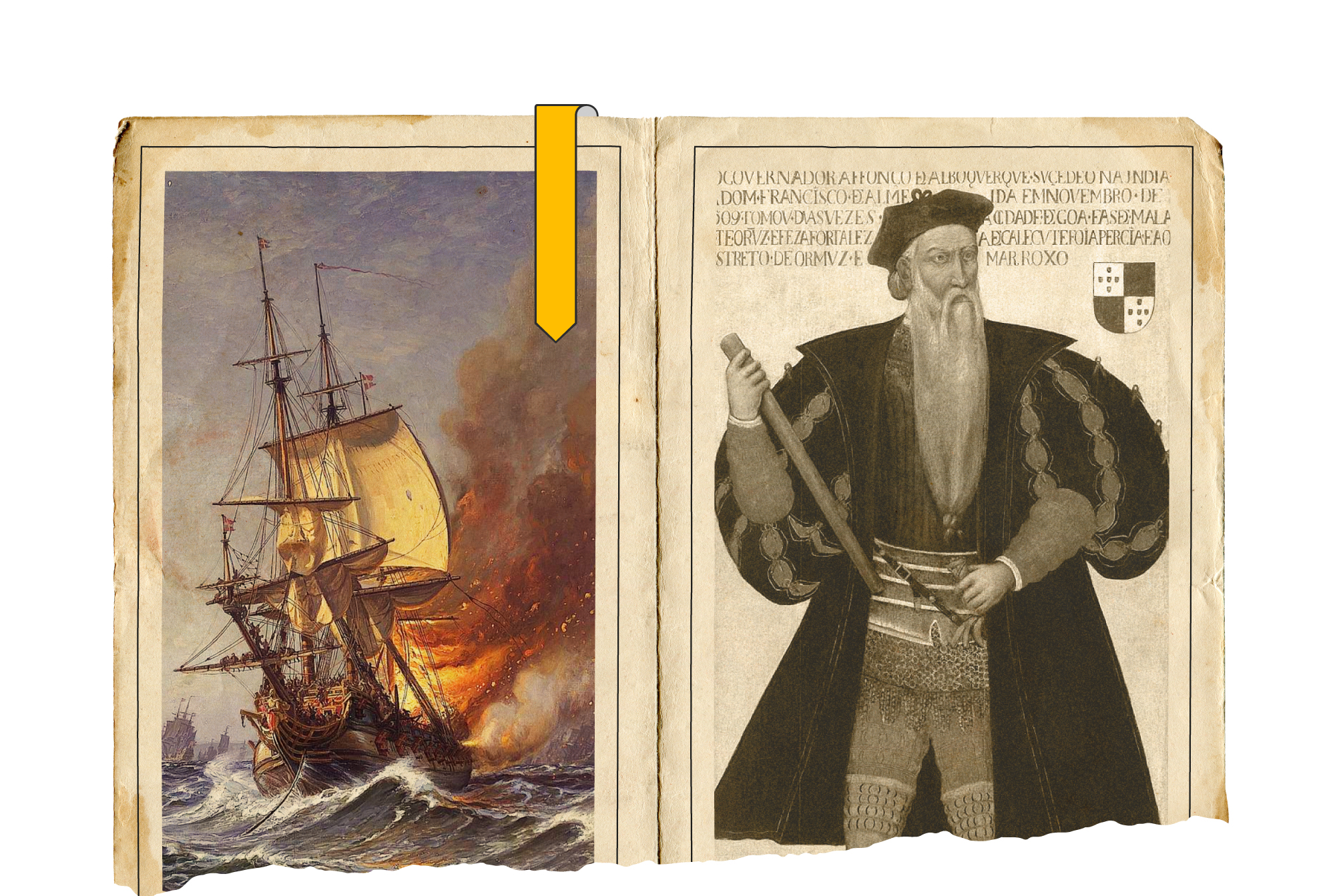
Portuguese-Safavid Relations
Shared Influence in Arab world and Worked on a Joint War Project
Since the outset of the sixteenth century AD, the political scene in Islamic world began to change rapidly. The emergence of the Safavid state in Iran and its removal of Aq Qwinlu state, its occupation of Baghdad (1508) and its overthrow of the authority of the Arab Mushasha’is in Ahvaz was an indication of that change, in addition to the emergence of the Portuguese in the region as a colonial force fanatical against Muslims. Thus, they became an active and influential force in Indian Ocean.
In a short period of their invasion of the region, the Portuguese were able to reach the wealth of India, relying on the papal decree they were carrying with them, which granted them the east of the ancient world. Their control on the seas was at the expense of the Venetians and the Arabs, so they established commercial centers on the coasts of East Africa and began attacking Arab facilities in the Indian Ocean, using the most brutal methods in dealing therewith, by burning and sinking ships, destroying Islamic cities and centers and expelling merchants therefrom.
The Portuguese continued their invasion until they reached the Arabian Sea, the Sea of Oman and the Arabian Gulf. They spread terror from Aden, passing through Omani ports, such as Ras al-Hadd, Qalhat, Muscat, Sohar, Khorfakkan and Ras al-Khaimah, reaching Arabian Gulf islands, such as Hormuz and Qism to Bahrain.
In the face of these events and developments in the political arena, the Safavids, led by Shah Ismail, were keen to ally with the Portuguese and to build a relationship dominated by courtship and amicability. That cooperation was clearly demonstrated in more than one situation, where the Persian fleet was providing logistical support and cooperation during the attack on Hormuz Island until the completion of its occupation by the Portuguese. He even approved their seizure of the Island in exchange for the Shah’s request for military assistance from the Portuguese against the King of Makran Al Balushi, provided that Gwadar port shall be subject to the Portuguese. The Portuguese also allowed the Persians to open a trading center for them in India, in Goa city, and granted them that Persian goods shall never be confiscated.
Albuquerque’s letter to the Shah indicated the extent of alliance between them when he said to him: “I knew that the Sultan is your enemy and that he is waging war against you. If Your Majesty desires to help us, I will carry out this request for you and subdue your opponent wherever and whenever he is. If you want to attack the Sultan by land, I can help you by sea. Rest assured that it shall be possible to seize Cairo and the whole country with limited efforts. If your Majesty agrees to ally with me and to mobilize your armies and drive them to occupy Cairo, then His Majesty the King of Portugal shall drive all his units and mobilize them to liberate Jerusalem and its neighboring lands. Therefore, I beseech Your Majesty to inform me about the place where you wish the Portuguese fleet to gather to implement the plan.” The Safavid Shah also used the Portuguese to accompany him with a Portuguese naval force in his campaign against Bahrain and Qatif, in addition to pledging to support them.
Portuguese-Safavid alliance project included dividing the Arab East into areas of influence between them, where it was proposed that the Safavids would occupy Egypt and the Portuguese shall have Palestine. That alliance affected the entire Arab region greatly, as the most important sea routes in the Indian Ocean and the Mediterranean Sea were lost, which affected the course of Arab commercial navigation, even terminated them to great extent. This is in addition to lacking the commercial position it was famous for for many centuries ago. Hence, the Portuguese colonizer, supported by the evil alliance of the government of the Safavid state, became the master of the situation, which affected Arab trade in the ports of the Red Sea and the Arabian Gulf, thus weakening the existing governments and kingdoms therein at the time.
They attacked Arab trade, surrounded vital ports and occupied all key



- Jalal Yahya, Modern and Contemporary European History… Europe’s Domination of the World (Alexandria: Modern University Office, 1990).
- Faleh Handal, Arabs and Portugal in History (Abu Dhabi: Publications of the Cultural Foundation, 1997).
- Abdul Latif Al-Humaidan, History of Basra, Al-Hasa and Al-Qatif 1505-1552 (Riyadh: King Abdulaziz House, 2020).

